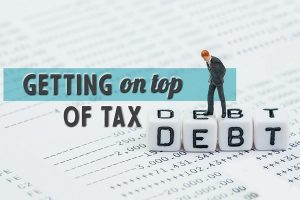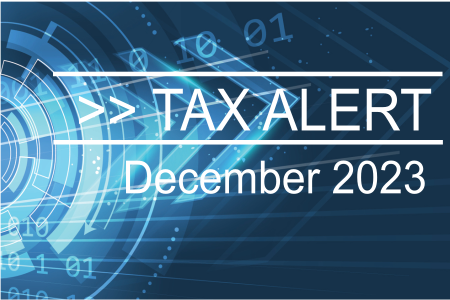Although most Aussies pay their tax bill on time, some can’t – or just won’t – pay what they owe.

In the 2017-18 financial year, the ATO collected over $500 billion in liabilities from Australian taxpayers, with 89.5 per cent of us paying on time and 95.9 per cent paying within 90 days of the due date.
This left 4.1 per cent of taxpayers with outstanding tax debts totalling $23.7 billion. Of this, $15.1 billion were tax debts owed by small businesses. That’s a lot of unpaid tax.
Getting taxpayers to pay
So what happens if you don’t pay your tax debts?
If you can’t pay your tax bill on time, it’s important not to panic. The ATO is willing to help, but you must continue lodging your tax returns and activity statements on time, even if you can’t pay on the due date.
Lodging on time helps avoid a penalty for late lodgement and shows the ATO you are aware of your obligations and are doing your best to meet them.
What action the ATO decides to take depends on your circumstances, past behaviour and lodgement and payment history. If you have a good tax payment history or are in serious hardship, you are likely to be treated differently than if you have deliberately set out to avoid paying your tax, or regularly fail to pay your tax debts.
In some circumstances, an individual taxpayer may be released from a tax debt but usually only if you are experiencing serious hardship.
Paying by instalments
If you can’t pay your tax bill by the due date, you may be allowed to set up a payment plan. In 2017-18, it granted 1.1 million payment plans, with 790,000 of these being for small businesses.
The ATO automatically begins charging a daily general interest charge (GIC) on tax debts and the debt continues growing until it is paid. During the July to September 2019 quarter, the GIC annual rate is 8.54 per cent.
Small businesses with an activity statement debt may be able to pay off this type of debt interest-free over 12 months if they meet certain eligibility criteria.
What will the ATO do if I don’t pay?
Aside from charging interest, if you don’t pay, the ATO will begin using your future tax refunds or credits to reduce your tax debt. It will also use these amounts to pay any debts you owe to other government agencies, such as overdue child support.
Routine income tax and activity statement debts are often referred to external debt collection agencies. However, tax debts that are being formally disputed are not referred.
Collection agencies are required to notify you in writing before contacting you to negotiate payment.
Taking stronger action
If you don’t reach an agreement with the collection agency, the debt is returned to the ATO. It may then take ‘stronger action’, such as issuing a garnishee notice or director penalty notice. Or it may start insolvency proceedings.
The ATO uses stronger actions with people who are unwilling to work with it, who repeatedly default on agreed payment plans, or who do not take steps to resolve their situation. If you are audited and deliberate avoidance is found, or non-payment continues, the ATO is also likely to use these harsher powers.
Garnishee notices require an employer, bank or trade debtor to pay your money directly to the ATO to reduce your tax debt.
The ATO may also file a claim or summons, which may result in you receiving a bankruptcy notice, or a statutory demand and application to wind up your company.
Don’t ignore a tax debt
Communication is essential when tackling tax debts. It’s also important to act immediately, as your interest bill increases daily.
The first step in getting on top of the situation is to contact the ATO or make an appointment with us to discuss your financial position.
We can also talk to the ATO on your behalf about your options when it comes to repaying or managing your tax debt with a payment plan.
If you would like help managing your tax obligations, call us today.
Did you enjoy this article?
Click below to share it
More News Articles

What the 2025 Federal Budget Means for you
Treasurer Jim Chalmers’ fourth federal budget
was just announced

Retirement Planning: It’s Not all About the Money
Retirement is often a massive life change for the majority of people who experience it

FBT – How Fringe Benefits Tax Works
FBT is separate to income tax. It’s calculated on the taxable value of the fringe benefit

Tax Alert December 2023
The ATO is getting back to business with it’s lenient approach during the pandemic over, it’s focus now is returning to traditional debt collection

How a Super Recontribution Strategy Could Improve Your Tax Position
The main reason for implementing a recontribution strategy is to reduce the taxable component of your super and increase the tax-free component

Rental investor? How to Get Your Tax Return Right
Extra care is needed when lodging returns with rentals
Connect Through our Socials
While you may have come to us from a variety of sources, the time has never been better to join us.
Connect through out socials to keep up to date with our latest news and get some tips.




